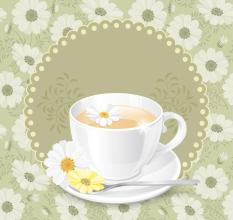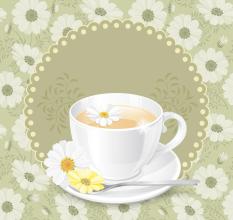Introduction of varieties in producing areas with long-lasting aroma and taste characteristics of coffee from Kimmel Manor, Rwanda
Rwanda has a temperate and tropical plateau climate, and because of its high altitude, its temperature is lower than that of typical equatorial countries. The daily temperature in Kigali, located in the middle of the country, is generally between 12 and 27 °C, with small fluctuations throughout the year. There is also a large temperature difference in some parts of the country, with temperatures lower in the mountainous west and north than in the eastern low-lying areas. Rwanda has two rainy seasons each year, each from February to June and the second from September to October, while there are also two dry seasons, with a longer duration from June to September, often with no rainfall at all. the other lasts from December to February, which is relatively less serious than the previous one. Rainfall varies from region to region, with more rainfall in the west and northwest than in the east and southeast. However, the rainy season pattern has changed as a result of climate change. According to a report by Strategic foresight, the number of overcast and rainy days each year is sometimes smaller, but the rainfall is greater in a short period of time. In other cases, there will be frequent torrential downpours in a single day, more than in the past month combined. In addition, there are cases where the rainy season comes late or ends early.
There are about 33000 hectares of coffee plantations in Rwanda, with 500000 people engaged in the coffee industry. With the good natural conditions of high altitude and fertile volcanic soil, the country's fertile soil and suitable climate contribute to plant growth, and coffee trees seem to be driven or forced to grow upward, or because they grow too fast to produce the best coffee beans. The beautiful country of thousands of hills Rwanda has a long and rich culture for growing highland coffee, mainly high-quality Arabica coffee. Rwanda is the only country in the world that can fully enjoy the harmony between soil, altitude and climate. In this unique growing environment, high-quality coffee from Rwanda has a distinctive taste and aroma. Bourbon coffee, which is grown in Rwanda, is one of the original varieties of Arabica coffee. The mission of the Rwanda Coffee Association is to manage and supervise the operation of the coffee industry in Rwanda from production to sale. The recently revised mission focuses on policy formulation and implementation, with more emphasis on the need to improve the professionalism of the coffee industry and to increase marketing efforts. Since its inception, the Rwanda Coffee Association has promoted the culture of Rwandan coffee and promoted the influence of Rwandan coffee in global coffee producing areas-since the 1920s, the Arabica coffee grown in Rwanda (Rwanda) has been famous for its unique fruit sweetness and strong grass aroma. In recent years, the Rwandan government has taken positive measures to vigorously promote coffee production, set up coffee production cooperatives in various places, and give technical guidance and financial support to farmers. Rwanda has grown coffee since colonial times. Although the crops are mainly coffee, the quality of coffee produced in the country is not outstanding, the status of coffee in the world is low, few people pay attention to it. Most of the coffee varieties grown in Rwanda are bourbon. Rwanda, known as the "country of a thousand hills", has a high-altitude mountain environment, fertile volcanic soil and abundant precipitation, and has a climate conducive to the growth of coffee trees. The advantages of varieties and excellent natural conditions should have produced high-quality coffee, but why the quality of its coffee performance is not satisfactory? The reason lies in the later stage of processing. Improper handling will reduce the quality of coffee and sacrifice a lot of good flavor in vain. Harvesting, planting, treatment, grading, transportation and other links will directly affect the quality of raw coffee beans, in which the lack of control in a certain link will become a stumbling block to good coffee.
The coffee fruit needs to be transported to the processing plant as soon as possible after picking, but due to the lack of domestic facilities, it is unable to deal with the fruit at the first time. The fruits pile up after being picked, because lack of ventilation will continue to accelerate mildew and decay, rotten fruits will affect the quality of coffee, defective flavor when it comes to the flavor of Rwanda. I was ashamed of the bias in the perception of Rwanda at first. I still remember that when I first came into contact with coffee, smell training was very resistant to No. 3 in the 36-smell bottle, and I even felt nauseous when I smelled it. So subjectively, I always like to make up the taste similar to grass automatically for the smell of green peas. Due to the lack of experience in tasting and production, we will subjectively list the grass and lavender-like aroma that Rwanda has as its own conflicting flavor. So when the production of Rwanda smelled its individual lavender fragrance, the coffee glutton shrank back to its stomach. However, with the improvement of taste and production experience, there is a new understanding of Rwanda with its individual fragrance.
Before sharing this article with you, in order to have a more objective evaluation of Rwanda, it is specially evaluated by cup test. Well-baked water-washed Rwanda has a dry aroma of roasted peanuts, accompanied by spice and wood aromas. The fragrance of wet lavender and green grass is strong. After the temperature drops a little, the sweetness of fruit increases, and the smell of lavender decreases. The palate is clean and mellow, with a good finish and a long-lasting aroma. The acidity is soft and the overall feeling is full and stretched.
Rwanda is like a friend with a distinct personality in life, at first contact will stay away because of the other person's too distinct personality, but after really getting to know each other, he will be attracted by his unique temperament. Rwanda is such a guy with great personality.

Important Notice :
前街咖啡 FrontStreet Coffee has moved to new addredd:
FrontStreet Coffee Address: 315,Donghua East Road,GuangZhou
Tel:020 38364473
- Prev

Long aftertaste of El Salvador Renas Manor Coffee Flavor and taste characteristics of boutique coffee
Savanna climate. The plain area belongs to the tropical rain forest climate and the mountain area belongs to the subtropical forest climate. The average annual temperature is 25-28 ℃. The annual precipitation is more than 1800 mm in mountain areas and about 1000 mm in coastal areas. The rainy season is from May to October. Don't underestimate El Salvador's coffee production. In its heyday, it was the world's fourth largest coffee producer, but decades of civil war almost dragged down coffee
- Next

Coffee flavor and taste characteristics of Panamanian jadeite manor introduction of boutique coffee beans in producing area
Copper and gold deposits are relatively large, currently ranking the sixth largest copper country, with an output value of US $430 million in the ore mining industry in 2013. There are theoretical reserves of oil and gas in the eastern rock strata, which has also become the focus of the international energy industry. For ordinary people, if they want to get out of the countryside, they can only go to the city to engage in the service industry, with a service output value of US $25.1 billion. Transportation, warehousing and tourism are major job opportunities.
Related
- Does Rose Summer choose Blue, Green or Red? Detailed explanation of Rose Summer Coffee plots and Classification in Panamanian Jade Manor
- What is the difference between the origin, producing area, processing plant, cooperative and manor of coffee beans?
- How fine does the espresso powder fit? how to grind the espresso?
- Sca coffee roasting degree color card coffee roasting degree 8 roasting color values what do you mean?
- The practice of lattes: how to make lattes at home
- Introduction to Indonesian Fine Coffee beans-- Java Coffee producing area of Indonesian Arabica Coffee
- How much will the flavor of light and medium roasted rose summer be expressed? What baking level is rose summer suitable for?
- Introduction to the characteristics of washing, sun-drying or wet-planing coffee commonly used in Mantenin, Indonesia
- Price characteristics of Arabica Coffee Bean Starbucks introduction to Manning Coffee Bean Taste producing area Variety Manor
- What is the authentic Yega flavor? What are the flavor characteristics of the really excellent Yejasuffi coffee beans?

